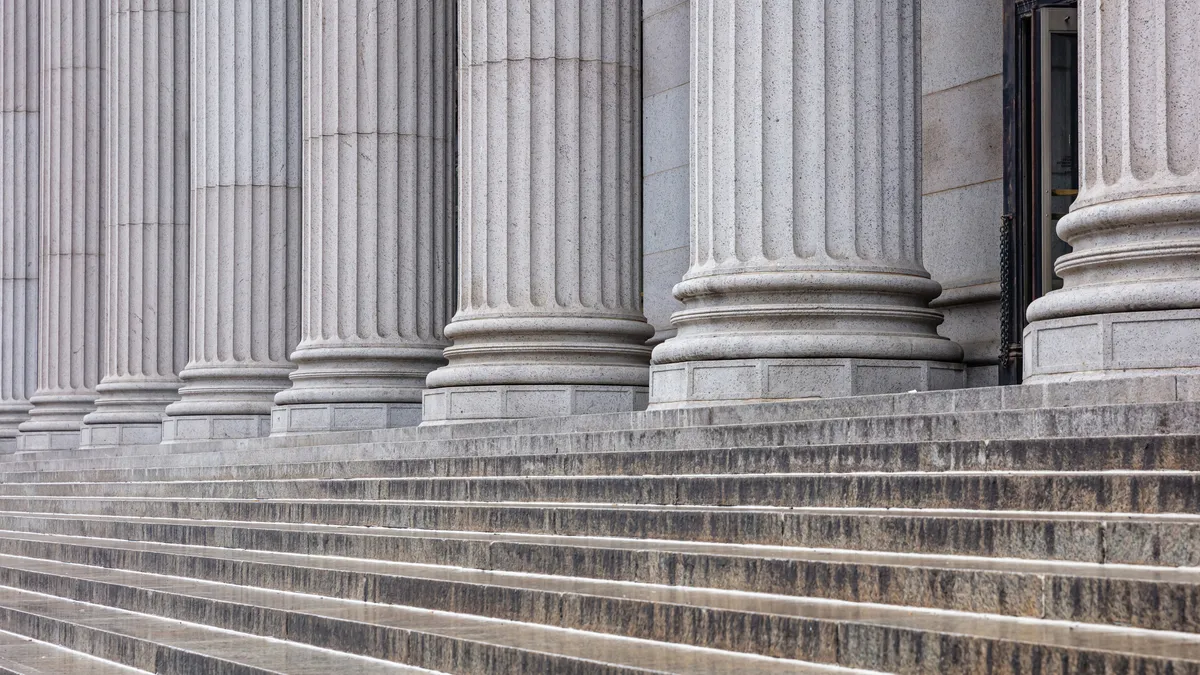Dive Brief:
- A federal judge in California this week threw out two new rules that would have restricted a visa pathway for highly skilled foreign workers and that several colleges formally opposed.
- The rules narrowed eligibility requirements for the H-1B visa program and increased how much U.S. employers would have to pay participants. The Trump administration cited the pandemic in expediting them this fall.
- The judge said the administration failed to demonstrate that the pandemic's impact on U.S. unemployment justified skipping the typical rulemaking process.
Dive Insight:
Legal experts said the changes could have hurt colleges' ability to recruit international students by limiting foreign workers' employment opportunities in the U.S.
Already, international student enrollment in the country is lagging. The number of foreign students fell for the first time in more than a decade during the 2019-20 academic year, according to a recent report from the Institute of International Education and the U.S. Department of State.
The pandemic is expected to deal another blow. A separate IIE survey of more than 700 schools put international enrollment down 16% this fall. The number of foreign students newly attending U.S. colleges fell by 43% from a year ago.
That comes as preliminary data shows that total undergraduate enrollment is down around 4% from last fall, per the National Student Clearinghouse Research Center. International students are among the groups most deeply affected.
Several colleges have opposed the H-1B visa rules, which are part of the administration's broader attempt to clamp down on immigration. The Labor Department's pay rule went into effect in October, while the eligibility rule from the Homeland Security Department was expected to take effect Dec. 7.
Six colleges were among the organizations that brought the complaint in California's Northern District, including the California Institute of Technology, the University of Utah and Cornell University. They called the two rules "a coordinated assault" on the H-1B visa category. They also argued that the requirement to pay those workers more would make it harder for colleges to find talent and may require them to pay domestic workers more.
While the summary judgment is "helpful," this is "likely not the last we’ll see of these regulations," said Heather Stewart, counsel and director of immigration policy at NAFSA: Association of International Educators, in an emailed statement.
"The Trump administration seems singularly focused on making it as difficult as possible for immigrants" to come to the country, Stewart said. "There is a lot of work to be done in 2021 to reestablish the United States as a welcoming nation to international students and other immigrants."
Nine colleges and a higher education consortium in Mississippi signed on to a separate lawsuit in the District of Columbia District Court. They similarly argued against the rule requiring pay increases.
Meanwhile, several tech companies are suing in New Jersey to prevent the Labor Department's rule from taking effect.













